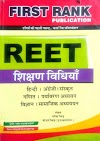What is the syllabus for AFCAT-EKT 2017 and which are the preferred books?
1. Engineering Mathematics. Matrix Algebra, Eigen values and Eigen vectors, Theorems of integral calculus, Partial derivatives, Maxima and minima, Multiple integrals, Stokes, Gauss and Green’s theorems. First order differential equation (linear and nonlinear), Cauchy’s and Euler’s equations, Complex variables, Taylor’s and Laurent’ series, Sampling theorems, Mean, Median, Mode and Standard deviation, Random variables, Discrete and Continuous distributions, Fourier transform, Laplace transform, Ztransform.
2. Engineering Physics. Units for measurement, Description of Motion in One, Two and Three dimensions, Laws of Motion, Work, Energy and Power, Rotational Motion, Gravitation, Heat and Thermodynamics, Electrostatics, Electric Current, Magnetic Effect of Currents, Magnetism, Electromagnetic Induction and Alternating Currents and Electromagnetic Waves, Ray Optics and Optical Instruments.
3. Engineering Drawing. Projection of straight line, planes, and solids, Intersection of surfaces, Isometric Projection, Sectional Views of solids, Full section, Introduction to Computer-Aided Drafting.
Specialization Branch Topics
4. Analog and Digital Electronics. Characteristics of diodes, BJT, FET, JFET and MOSFET, Amplifiers – biasing, equivalent circuit and frequency response, Oscillators and feedback amplifiers, Operational amplifiers – characteristics and applications, Simple active filters, VCOs and timers, Combinational and sequential logic circuits, Multiplexer, Schmitt trigger, Multi-vibrators, Sample and hold circuits, A/D and D/A converters, 8-bit microprocessor basics, architecture, programming and interfacing.
5. Electrical Engineering. Single phase transformer – equivalent circuit, phasor diagram, tests, regulation and efficiency, Three phase transformers – connections, parallel operation, Auto-transformer; Energy conversion principles, DC machines – types, windings, generator characteristics, armature reaction and commutation, starting and speed control of motors, Single phase and Three phase induction motors – principles, types, performance characteristics, starting and speed control, Starting motors, Servo and stepper motors, Synchronous machines Generators – performance, regulation and parallel operation.
6. Electronic Devices. Energy bands in Silicon, Intrinsic and extrinsic Silicon, Carrier transport in Silicon – diffusion current, drift current, mobility, and resistivity. Generation and recombination of carriers, p-n junction diode, Zener diode, tunnel diode, BJT, JFET, MOS capacitor, MOSFET, LED, PIN and avalanche photodiode, Basics of the LASER. Device technology – integrated circuits fabrication process, oxidation, diffusion, ion implantation, photolithography, n-tub, p-tub, and twin-tub CMOS process.
7. Control Engineering. Application of open loop and closed loop systems, Principles of feedback, Determination of transfer function by block diagram reduction method, Time domain analysis of first and second order systems, transient and steady-state errors, damping and oscillations, Routh and Nyquist techniques, Bode plots, Root loci, Lag, lead and lead-lag compensation, State space model, State transition matrix, Controllability and observability.
8. Telecommunication Systems. Random signals and noise – probability, random variables, probability density function, autocorrelation, power spectral density. Analog communication – amplitude and angle modulation and demodulation systems, spectral analysis of these operations, superheterodyne receivers, elements of hardware, realizations of analog communication systems, signal-to-noise ratio (SNR) calculations for AM and FM. Fundamentals of information theory and channel capacity theorem. Digital communication systems – Pulse Code Modulation (PCM), Differential Pulse Code Modulation (DPCM), Digital modulation schemes: amplitude, phase and frequency shift keying schemes (ASK, PSK, FSK), Matched filter receivers, Bandwidth consideration and the probability of error calculations for these schemes. Basics of TDMA, FDMA and CDMA. Fundamentals of mobile communication. Fundamentals of optical fiber communication.
9. Microwave Engineering. Waveguides, Waveguide components, Klystrons, Travelling Wave Tubes, Magnetron, Microwave measurements, Introduction to microstrip lines, Microwave network analysis, Microwave semiconductor devices, Monolithic microwave integrated circuits.
10. Antenna and Wave Propagation. Antenna parameters, Radiation from a current element in free space, Reciprocity theorem, Resonant and non-resonant antenna, Effective length and aperture, gain, beamwidth, directivity, radiation resistance, efficiency, polarization, impedance and directional characteristics of the antenna, antenna temperature. A phased array antenna, Mechanism of radio wave propagation, Reflection, refraction, interference and diffraction of radio waves. Theory of ground wave, space wave, sky wave and troposcatter propagation.
Allied Engineering Topics
11. Instrumentation. Accuracy, precision and repeatability, Electronic instruments for measuring basic parameters, Theory of Oscilloscopes, Signal Generators, Signal analyzers, Characteristics and construction of transducers.
12. Computer Networks. ISO/OSI stack, LAN technologies (Ethernet, Token ring), Flow and error control techniques, Congestion control, TCP/UDP and sockets, IPv4, Application layer protocols (icmp, dns, smtp, pop, ftp, http); Basic concepts of hubs, switches, gateways, and routers.
13. Network Theory Design. Thevenin’s, Norton’s, Reciprocity, Superposition, Compensation, Miller’s, Tellegen’s and Maximum power transfer theorems. Impulse, step, ramp and sinusoidal response analysis of first order and second order circuits. Two port parameters and their interrelations, Application of Laplace transform and Fourier series in the context of network analysis, Network Synthesis.
14. Switching Theory. Traffic definitions, Introduction to switching networks, classification of switching systems. Grade of Service, Basics of Circuit switching and packet switching.
15. Information Technology. Fundamentals of the operating system, RDBMS terminologies, Object-Oriented Programming, Basics of computer graphics.
16. Radar Theory. Radar range equation, Frequencies of operation, fundamentals of Moving Target Indicator (MTI), Pulse Doppler Radar, Tracking radar.




